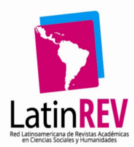Popular education with children. Dialogues between the pedagogy of the oppressed and the pedagogy of tenderness
Keywords:
popular education, childhood, adultcentrism, participation, tenderness
Abstract
Starting from a brief analysis of the capitalist state as a social relationship and conceptualizing children as a minority in a situation of oppression, we begin the article by asking about the form of capitalist socialization that is condensed in the state institutionality and lodge the production and Reproduction of intergenerational binds marked by a specific form of violence: adultism. Subsequently, we analyze Freire’s notions of oppression and banking education from a critical perspectives of adultism, and then we ask ourselves how to develop emancipatory pedagogies centered on dialogue if in our societies, children are not considered valid interlocutors. In an attempt to answer this question, we propose a combination of the pedagogy of the oppressed and the pedagogy of tenderness. From there, we invite you to take on the challenges of the political formation and organization of the new generations, promoting their prominence, and seeking to reinvent the pedagogies that contribute to the construction of emancipatory projects from a child, organized and class solidarity. We intend with this article to make a contribution to the theory and to the pedagogical practice from the specificity of popular education with children.Downloads
Download data is not yet available.
Published
2020-11-30
How to Cite
Morales, S., & Retali, E. (2020). Popular education with children. Dialogues between the pedagogy of the oppressed and the pedagogy of tenderness. Revista Del IICE, (48). https://doi.org/10.34096/iice.n48.10210
Issue
Section
Dossier. A propósito del Centenario de Paulo Freire











